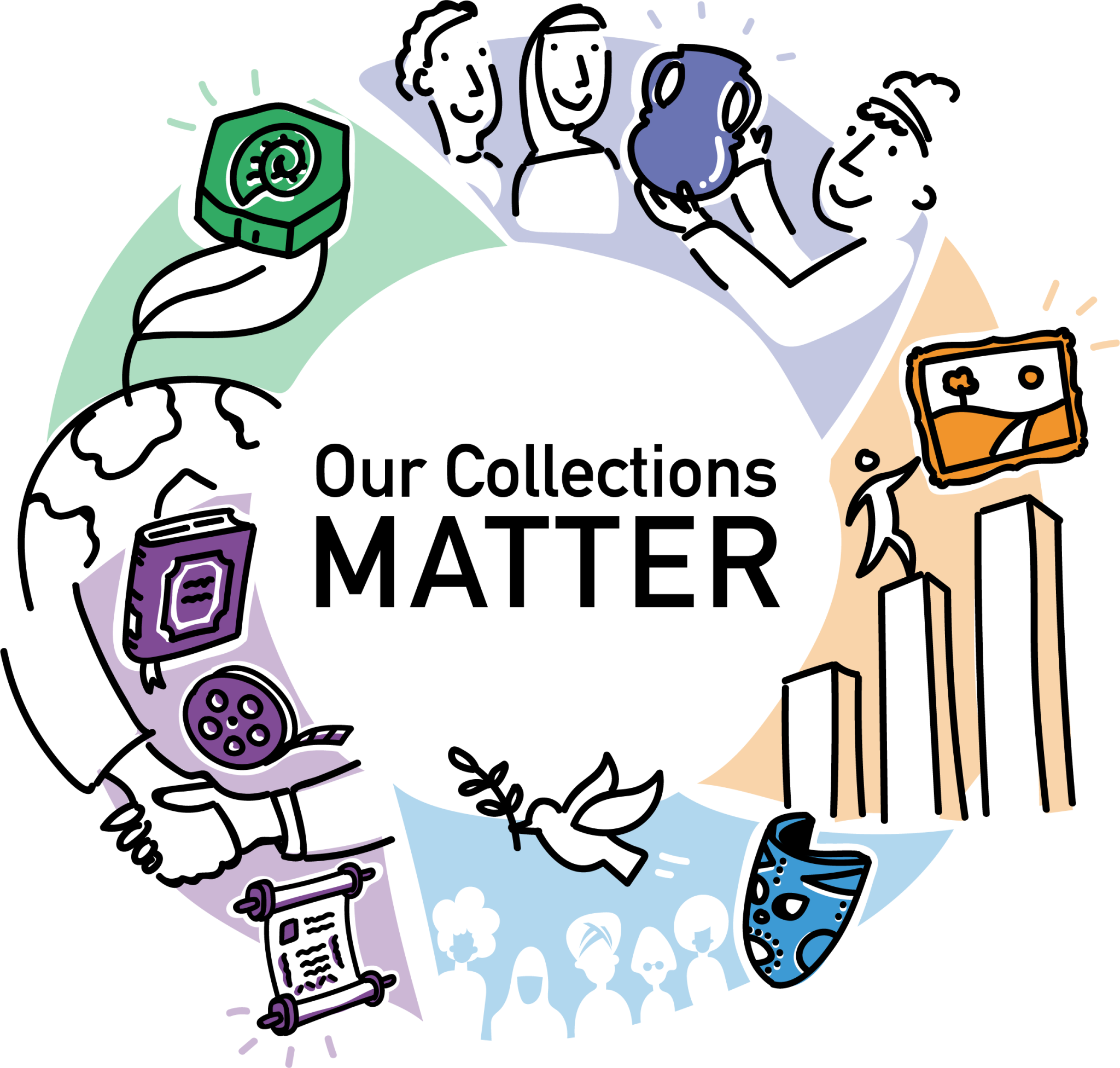
Our Collections Matter is about supporting collections-based organizations to (effectively) connect with the Sustainable Development Goals. During this workshop you will learn about this project and the results achieved so far. The Centre for Global Heritage and Development is a partner in the project and together with ICCROM, we will host this workshop.
Our Collections Matter is a project launched by ICCROM (International Centre for the Study of the Preservation and Restoration of Cultural Property). It started in 2019 with the aim of enabling professionals and organizations working with heritage collections anywhere in the world to make concrete contributions towards Sustainable Development through conservation and other collection-based activities. After one year of collaboration with several partners around the globe, ICCROM has created a web-based toolkit to encourage and support collection-based institutions to play their fullest part in Sustainable Development. The toolkit contains the most useful methods and tools currently in use in the heritage sector and beyond, and will incorporate new ones as they are developed by project partners and other parties.
For Whom
The workshop is intended for people working with, or studying, public or private collections, worldwide. We are interested to get in touch with collection-based organizations of all kinds, such as archives, libraries, museums (including outdoor museums, eco-museums, and other ‘living museums’), community-owned heritage collections, religious collections, online collections, seed banks and biobanks. After the general presentation, you will be invited to join a breakout room and be included in a further discussion to ensure that collection-based work and conservation can contribute to sustainable development.
Programme (time is in CET)
17:00-17:05: Welcome by Marzia Loddo
17:05-17:15: Presentation of the Our Collections Matter project, by Luiz Pedersoli (ICCROM), and the Agenda 2030, by Henry McGhie (Curating Tomorrow).
17:15-17:20: Division of the participants into break-out rooms. Each room will have a moderator and s/he will record the session (recordings of the breakout rooms will not be shared).
17:20-18:30: Plenary discussion in breakout rooms.
18:30-18:45: Report by the moderators on the discussions.
18:45-19:25: Plenary discussions in breakout rooms.
19:25:-19:30: final remarks and conclusions.
Registration
Registration is closed, those who registered will receive a Zoom-link and more information.
Involved Experts
Marzia Loddo has worked as an expert in applied arts conservation in several Italian museums. She holds the European title of Doctor of Preservation of Architectural Heritage (2019, Politecnico di Milano). In 2020, she published her first monograph, (Storage facilities for the collections of art museums. A focus on the Italian context), on the topic of art collections storage. Marzia is currently based in the Netherlands, where she is a postdoctoral researcher at the Delft University of Technology. Marzia is furthermore an Affiliated Researcher of the Centre for Global Heritage and Development (Leiden-Delft-Erasmus), ICCROM and ICOM.
José Luiz Pedersoli has a background in polymer chemistry with a focus on paper-based heritage conservation. He was a conservation scientist at the Cultural Heritage Agency of the Netherlands (1997-2003) and ICCROM (2005-2008). Since 2005 he works in risk management of cultural heritage, including the development of new methodologies and tools, capacity building, research, and awareness. Back at ICCROM since 2018, he is currently managing the Strategic Planning Unit and a portfolio of projects on heritage collections, risk management, and sustainability.
Henry McGhie has a background as an ecologist, museum curator and senior manager. He runs the UK-based consultancy Curating Tomorrow, supporting museums and their partners to enhance their contribution to sustainable development agendas, including the SDGs, climate action and biodiversity conservation. He is a member of the ICOM Sustainability Working Group and IUCN Commission on Education and Communication.

